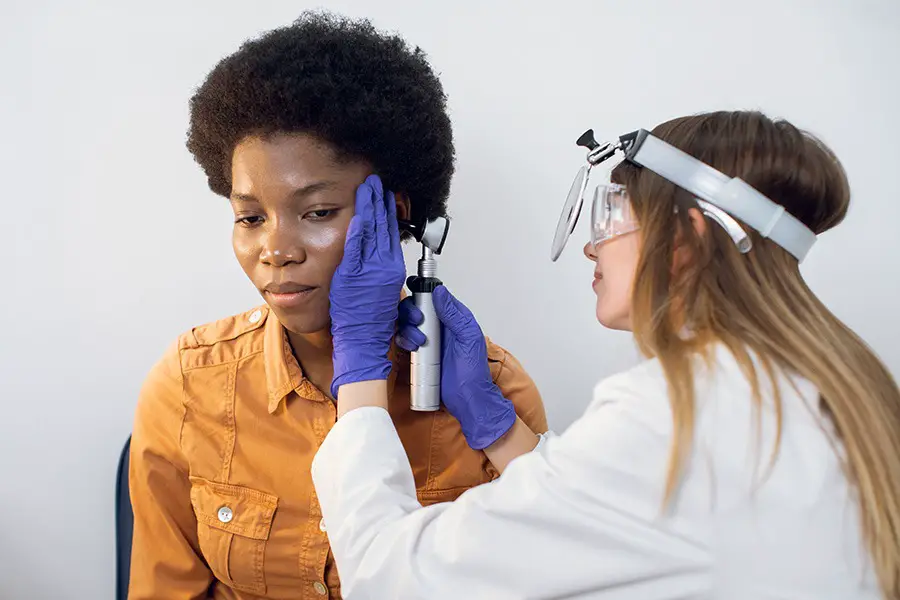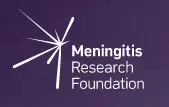Introduction
For those recently diagnosed, the prospect of managing meningitis and hearing loss can be daunting. This comprehensive resource aims to furnish you with problem-solving tactics and valuable knowledge to help you on this journey. It encompasses the newest advancements in treatment, coping methods and much more to equip you to tackle the challenges accompanying meningitis and hearing loss. Let’s delve into a multitude of topics and tactics designed to help you surmount this inconspicuous battle.
The Aftermath of Meningitis
Its Impact on Hearing: Meningitis, an inflammation of the protective layers encasing the brain and spinal cord, can drastically influence your hearing. The infection may impair the sensitive structures within the inner ear, leading to a spectrum of hearing loss. This can span from mild to severe, and can involve one or both ears. It’s crucial to be alert for any hearing alterations during and after recuperation from meningitis, as timely detection and intervention can substantially enhance your long-term outlook.
In certain cases, hearing loss from meningitis may be transient, improving as the infection wanes. Nevertheless, permanent hearing loss is also a possibility, especially if the harm to the inner ear is extensive. Prompt medical intervention and adherence to the recommended treatment regimen can mitigate the risk of permanent hearing loss. Remember, transparent communication with your healthcare providers is essential for securing the best possible results for your auditory health.
Meningitis and Hearing Loss in Infants: Prevention and Care
Infants are especially susceptible to meningitis and its subsequent complications, such as hearing loss. Their underdeveloped immune systems may render them more prone to infections. As a parent, it’s crucial to take preventative steps to shield your baby from meningitis and its potential effects on their hearing. This entails ensuring they get the vaccinations suitable for their age, maintaining good hygiene practices, and promptly seeking medical help if an infection is suspected.
Providing care for an infant with meningitis and hearing loss can be demanding, but it’s vital to stay proactive in seeking assistance and resources. Early intervention is paramount in helping your child achieve the most favorable outcome. This may encompass hearing evaluations, speech and language therapy, and supportive devices such as hearing aids or cochlear implants. Teaming up with healthcare professionals, educators, and therapists can help you devise a comprehensive care plan tailored to your child’s unique needs.
Overcoming the Challenges of Hearing Loss Post-Meningitis
Life after meningitis-induced hearing loss can pose a variety of challenges. However, with the appropriate strategies and support, overcoming them is achievable. First and foremost, it’s essential to cultivate a robust support network, consisting of friends, family, healthcare professionals, and support groups. Encircling yourself with empathetic and supportive individuals can make a remarkable difference in your quest for improved hearing and communication.
Formulating effective communication techniques is another vital step towards overcoming hearing loss post-meningitis. This may include mastering lip-reading, adopting sign language, or trying out assistive listening devices. Moreover, advocating for your needs to others can help foster a more inclusive and accommodating environment. Remember, maintaining a positive mindset and capitalizing on your strengths can aid you in adapting and flourishing amidst adversity.
Audien BTE (Behind the Ear) Rechargeable OTC Hearing Aid
Experience Unparalleled Sound Quality with the New Audien BTE (Behind the Ear) hearing amplifier. Elevate your hearing with the clearest, highest-quality sound available in an over-the-counter hearing assistance device. Designed by Audien, renowned for their sleek and comfortable hearing devices, the BTE model ensures exceptional hearing performance. It features advanced digital technology, including four environmental modes, background noise reduction, feedback cancellation, and two directional microphones per unit (four in total).
Say Goodbye to Missed Conversations and Hello to Superior Sound. Audien hearing devices excel at amplifying speech while reducing background noise, allowing you to effortlessly engage in conversations with friends and family. Experience the consistent, long-lasting, and sharp sound quality without any whistling or feedback issues. With customizable volume control, you can easily adjust the amplification to meet your individual needs. These devices are perfect for enhancing high tones and improving TV dialogue clarity.
Rechargeable for Uninterrupted Use. The Audien BTE hearing amplifiers are 100% rechargeable, offering convenience and freedom from the hassle of tiny button batteries. With wireless magnetic charging technology, you can enjoy a 20-hour battery life with just a quick two-hour charging time. The included charging case provides up to three full charges, giving you a total of 60 hours of amplified sound. Simply place the devices in the case, and they will wirelessly charge, ensuring you’re always ready to hear your best. Experience the ease and reliability of Audien sound amplifiers, ideal for individuals with dexterity issues or those tired of constantly purchasing and replacing batteries.
Coping with Hearing Loss After Meningitis: Tips and Strategies
Managing hearing loss subsequent to meningitis can pose emotional and psychological hurdles. However, adopting practical coping methods can facilitate navigating through this challenging period. One such approach involves educating yourself about hearing loss and the array of treatments and resources at your disposal. The more knowledgeable you are, the better positioned you will be to make informed decisions about your care and advocate for your needs.
Another crucial coping tactic is maintaining connections with others. Sustaining relationships with friends, family, and support groups can provide valuable emotional support and practical guidance. Sharing your experiences and learning from others who have encountered similar challenges can alleviate feelings of loneliness and instill a sense of empowerment.
Lastly, concentrating on self-care is of utmost importance when coping with hearing loss after meningitis. This includes prioritizing your physical, emotional, and mental health. Participating in activities that bring you joy, practicing relaxation techniques, and seeking professional help when required, all contribute to your overall well-being and resilience.
Meningitis and Hearing Loss: A Comprehensive Resource Guide
The world of meningitis and hearing loss may seem daunting, but having a comprehensive resource guide at your disposal can significantly ease the journey. By gathering a list of credible sources, encompassing websites, books, support groups, and healthcare professionals, you can ensure access to the most current and reliable information.
Resources you may find useful include the Centers for Disease Control and Prevention (CDC), World Health Organization (WHO), American Academy of Audiology, and the Hearing Loss Association of America. These organizations offer valuable guidance on prevention, diagnosis, treatment, and support for those affected by meningitis and hearing loss. Remember, staying informed and connected is crucial to empower yourself and manage your condition effectively.
The Journey to Better Hearing After Meningitis
The path to improved hearing after meningitis may pose challenges, but with determination, support, and the right resources, it is attainable. Your journey might involve various steps such as collaborating with audiologists and other healthcare professionals, exploring hearing aids or cochlear implants, and participating in speech and language therapy.
It’s important to be patient with yourself and acknowledge that progress might be gradual. Celebrate your achievements, no matter how small, and sustain a positive outlook as you move forward. By staying committed to your journey and seeking the necessary support, you can ultimately achieve better hearing and an enhanced quality of life.
Conclusion:
While the challenges of managing meningitis and hearing loss can be numerous, adopting problem-solving strategies and staying informed can equip you to confront these challenges confidently. This guide has offered you insights and resources to help steer your journey towards improved hearing and overall well-being. Remember, fostering a strong support network, seeking early intervention, and focusing on self-care are all essential components of tackling meningitis and hearing loss. Continue moving forward, and tap into the strength of resilience as you embark on your path towards a brighter, more empowered future.

Decoding Silence: An Analytical View on the Advances in Conductive Hearing Loss Research and Treatment
This analytical article sheds light on conductive hearing loss, offering an in-depth exploration of its genetic factors, treatment advances, and promising experimental therapies.

Embracing the Melody of Life: Navigating the Journey with Conductive Hearing Loss
A blog post delving into the experiences and challenges of living with conductive hearing loss, discussing its impact on everyday life, social interactions, mental health, and the potential benefits of hearing aids and cochlear implants.





